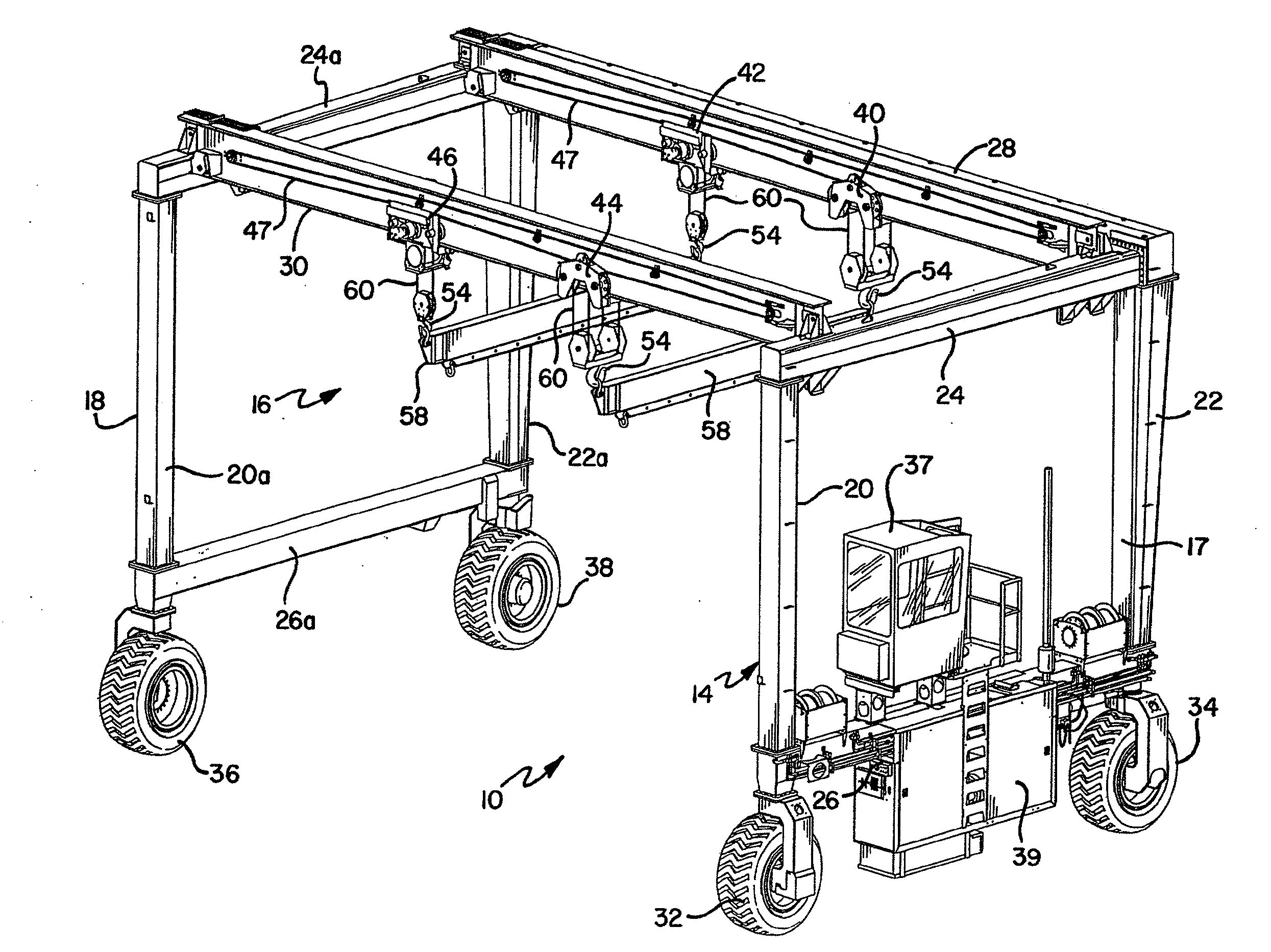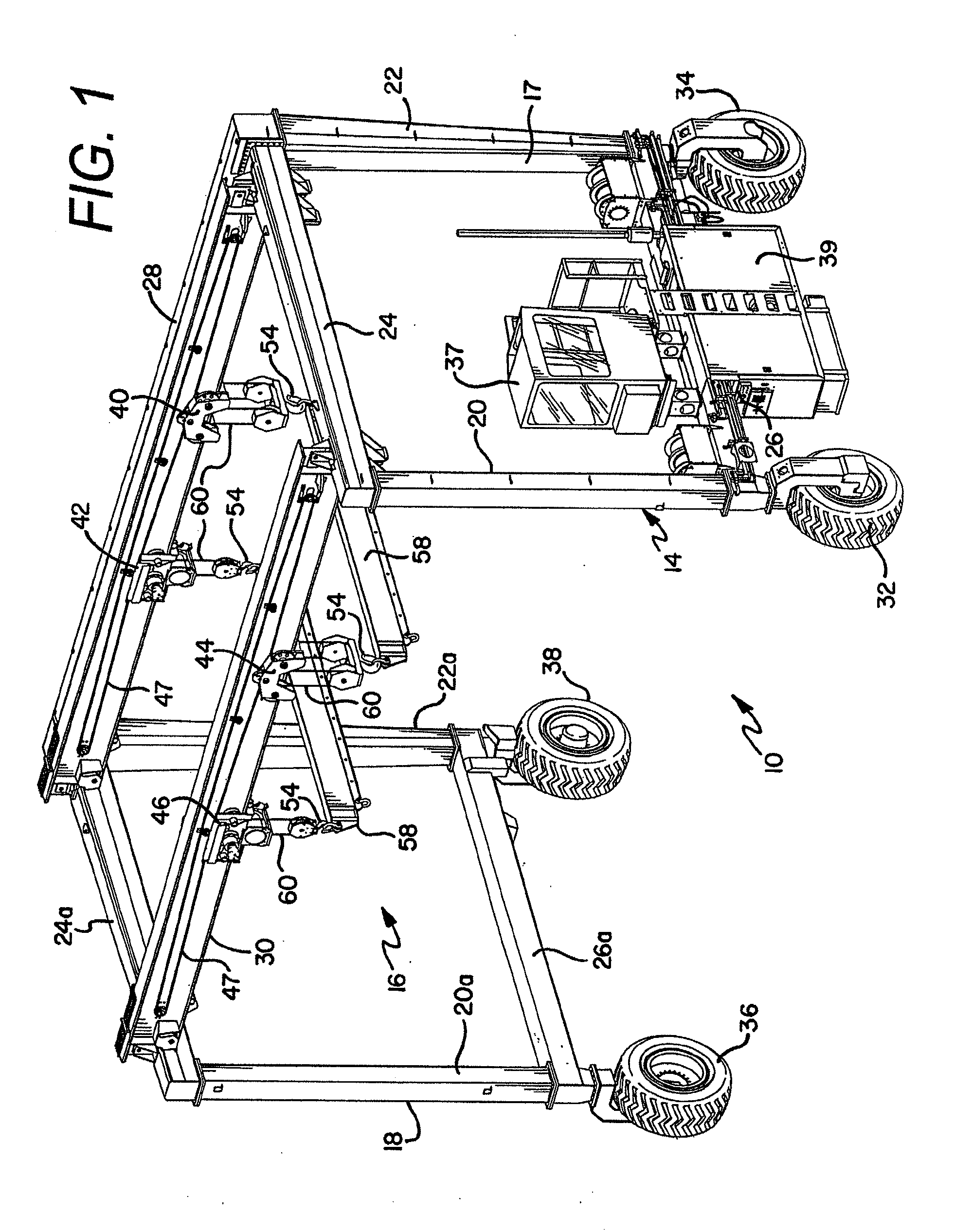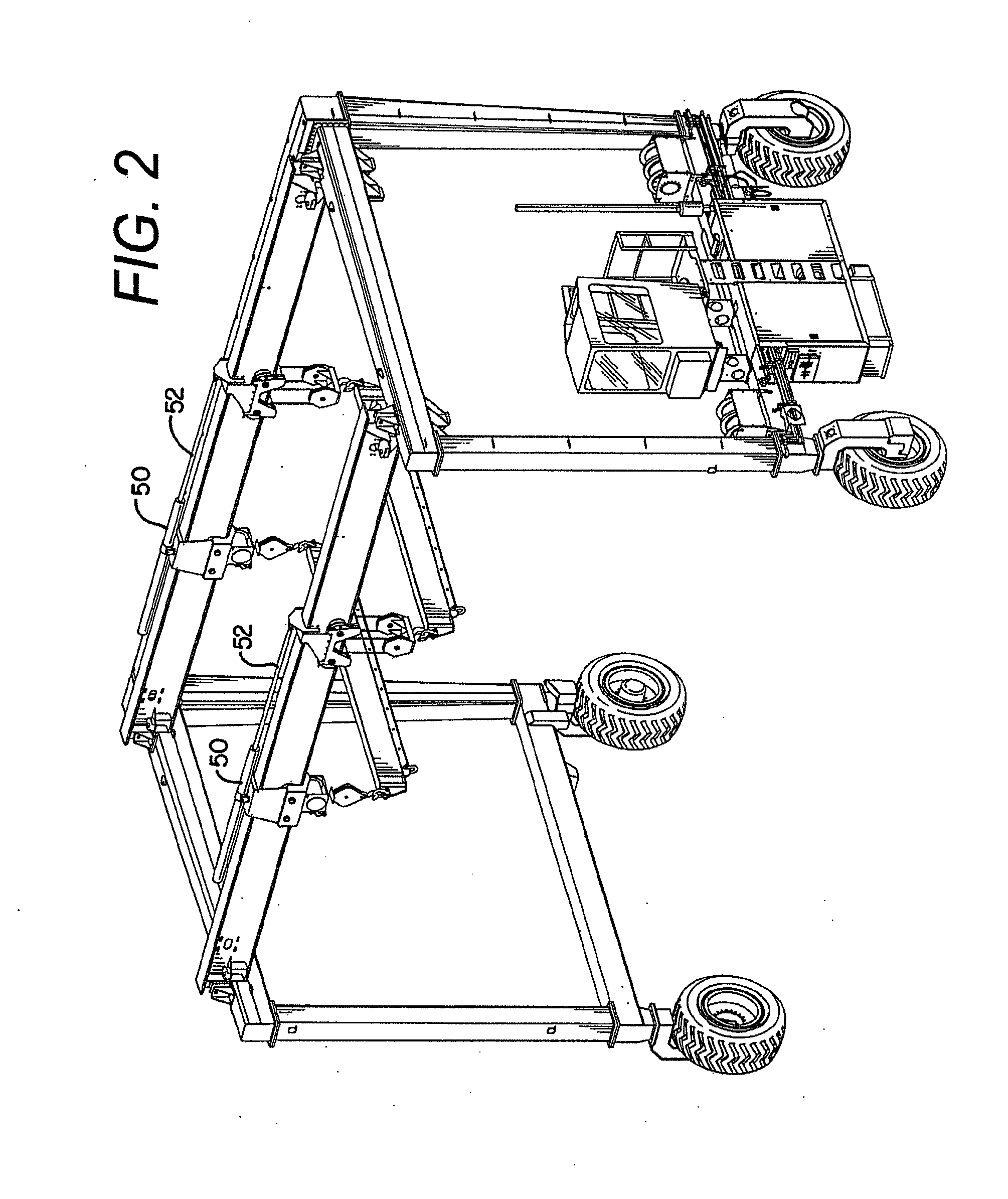Panel turner for a gantry crane
a technology of gantry crane and gantry, which is applied in the direction of hoisting equipment, mechanical control devices, instruments, etc., can solve the problems of nevertheless having certain limitations, and achieve the effect of reducing the second weight capacity and efficiently storing the panels
- Summary
- Abstract
- Description
- Claims
- Application Information
AI Technical Summary
Benefits of technology
Problems solved by technology
Method used
Image
Examples
Embodiment Construction
[0045]While this invention is susceptible of embodiments in many different forms, there are shown in the drawings and will herein be described in detail preferred embodiments of the invention with the understanding that the present disclosure is to be considered as an exemplification of the principles of the invention and is not intended to limit the broad aspect of the invention to the embodiments illustrated.
[0046]FIG. 1 shows a load lifting assembly 10 in the form of a gantry crane with load lifting features. In this preferred embodiment of the invention, the gantry crane 10 is configured in a panel turner application, and it is understood that the gantry crane 10 and panel turner structure can take various forms. The general structure of the gantry crane 10 will first be described followed by a description of certain features employed in the operation of the panel tuner features of the gantry crane 10.
[0047]The gantry crane 10 generally includes a load lifting support structure ...
PUM
 Login to View More
Login to View More Abstract
Description
Claims
Application Information
 Login to View More
Login to View More - R&D
- Intellectual Property
- Life Sciences
- Materials
- Tech Scout
- Unparalleled Data Quality
- Higher Quality Content
- 60% Fewer Hallucinations
Browse by: Latest US Patents, China's latest patents, Technical Efficacy Thesaurus, Application Domain, Technology Topic, Popular Technical Reports.
© 2025 PatSnap. All rights reserved.Legal|Privacy policy|Modern Slavery Act Transparency Statement|Sitemap|About US| Contact US: help@patsnap.com



